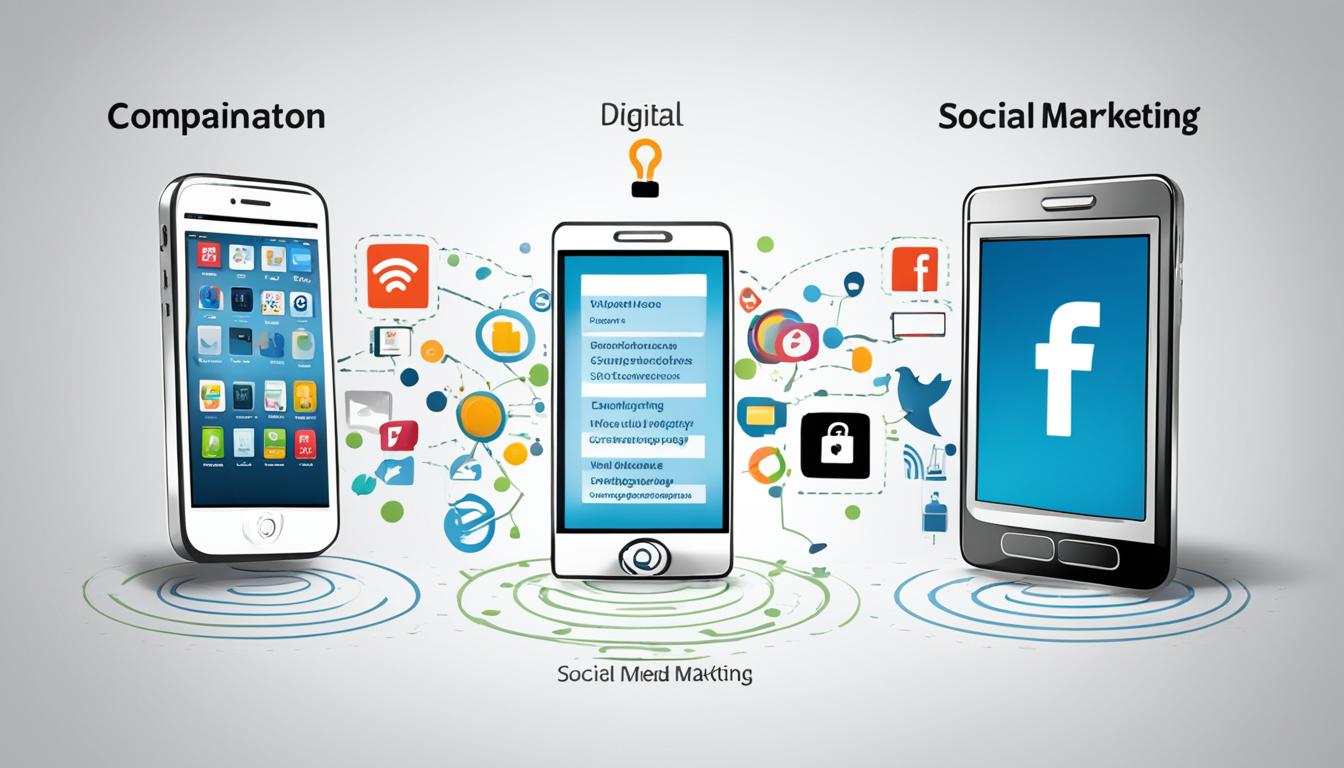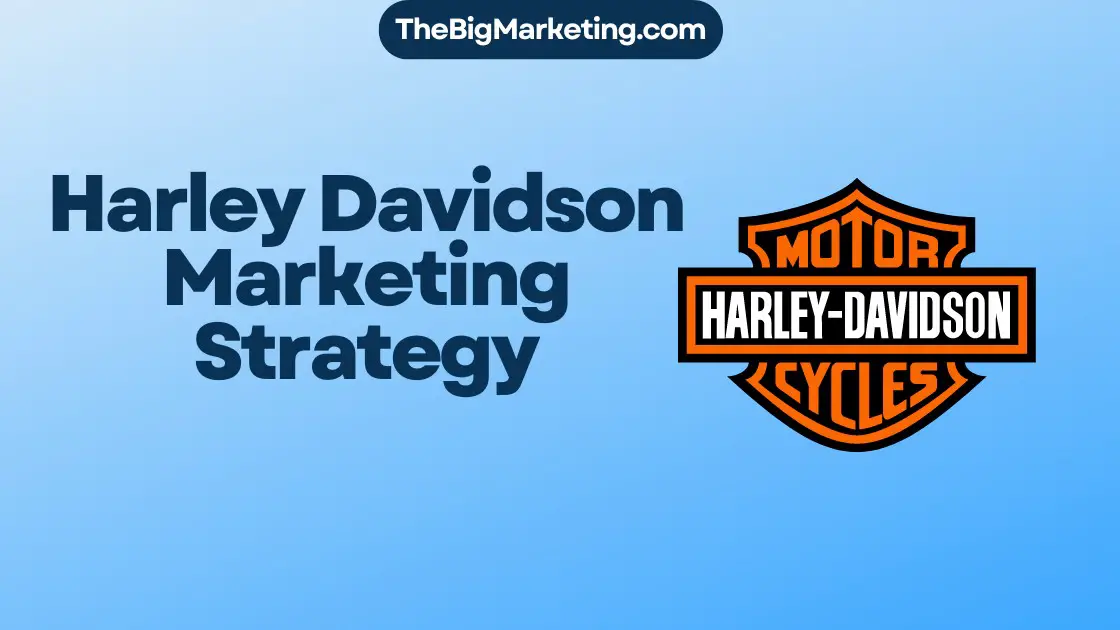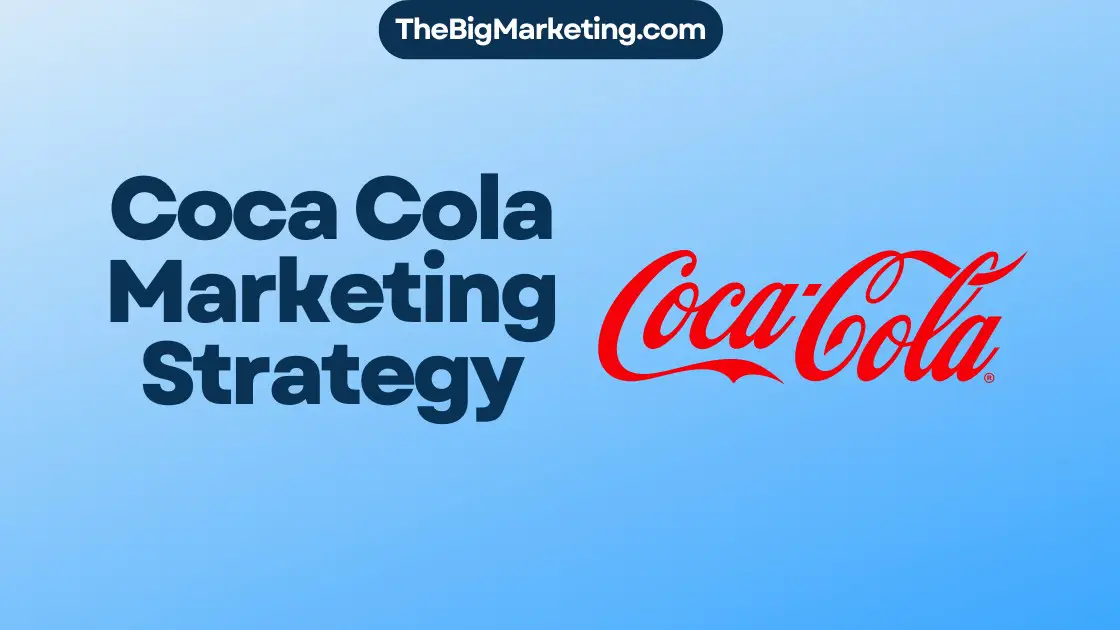In this article, we will explore the key differences between digital marketing and web development. We will clarify the definitions of digital marketing and web development, discuss their objectives and similarities, and examine the pros and cons of each field. Additionally, we will provide guidance on which career path to choose based on individual needs and preferences.
Key Takeaways:
- Digital marketing and web development are two distinct fields with different objectives and techniques.
- Digital marketing focuses on using digital tools and platforms to advertise products or ideas to customers, while web development involves creating and maintaining websites using coding languages.
- Both fields require specific skills and offer different career options and job prospects.
- Having an online presence is crucial in today’s digital age, making digital marketing and web development skills in demand.
- The choice between digital marketing and web development depends on individual needs and preferences, but incorporating both can lead to a powerful online strategy.
Definitions: Digital Marketing and Website Development
Before diving deeper into the comparison between digital marketing and website development, it is important to clarify their definitions and key concepts.
Digital Marketing
Digital marketing is the practice of using digital tools and platforms to promote products, services, or ideas to a targeted audience. It involves leveraging various online channels and strategies to attract, engage, and convert potential customers. Key components of digital marketing include:
- Search Engine Optimization (SEO): Optimizing websites to improve their visibility and ranking on search engine results pages.
- Pay-per-Click (PPC) Advertising: Running targeted advertising campaigns where advertisers pay a fee each time their ad is clicked.
- Social Media Marketing: Utilizing social media platforms to connect with the audience, build brand awareness, and drive engagement.
- Email Marketing: Sending strategic emails to prospects and customers to nurture relationships, promote products, and encourage actions.
Digital marketing plays a crucial role in increasing brand visibility, generating leads, and driving sales in the digital landscape.
Website Development
Website development refers to the process of creating and maintaining websites. It involves utilizing coding languages, design principles, and frameworks to build functional and visually appealing websites. Website development can be classified into three main components:
- Front-end Development: Focusing on the visual and interactive elements of a website that users see and interact with directly.
- Back-end Development: Handling the server-side functionalities of a website, including database management, server configuration, and website performance optimization.
- Full-stack Development: Combining both front-end and back-end development expertise to manage all aspects of website creation and maintenance.
Website development plays a critical role in ensuring that a website is user-friendly, responsive, and functional across different devices and browsers.
Now that we have a clear understanding of digital marketing and website development, we can proceed with exploring their key differences and similarities.
Key Differences Between Digital Marketing vs Web Development
When comparing digital marketing and web development, it is important to understand their key differences and objectives. Digital marketing focuses on attracting customers, increasing brand awareness, and converting leads into customers. On the other hand, web development prioritizes creating fast and responsive websites that provide an optimal user experience.
Digital marketers utilize websites as a platform to showcase products or services, implement marketing strategies, and drive conversions. They leverage various online channels, such as search engines, social media platforms, and email marketing, to reach and engage with the target audience. Digital marketing activities include search engine optimization (SEO), pay-per-click (PPC) advertising, content marketing, and social media marketing.
Web development, on the other hand, is the technical process of building and maintaining websites. Web developers use coding languages such as HTML, CSS, and JavaScript to create the front-end (user interface), back-end (server-side functionalities), and full-stack (both front-end and back-end) components of a website. They focus on ensuring the website’s functionality, performance, responsiveness, and compatibility across different devices and browsers.
The Collaboration Between Digital Marketing and Web Development
The interplay between digital marketing and web development is crucial for a successful online presence. Digital marketers rely on well-designed and user-friendly websites to attract and retain customers. A fast and responsive website enhances the overall user experience, encourages visitor engagement, and increases the likelihood of conversions. Conversely, web developers collaborate with digital marketers to ensure that the website meets the specific requirements, functionality, and design elements necessary for effective marketing campaigns.
When digital marketing and web development work together harmoniously, the result is a powerful online strategy that maximizes customer reach and engagement, increases brand visibility, and drives business growth.
The Key Differences at a Glance
| Digital Marketing | Web Development |
|---|---|
| Objective: Attract customers and increase brand awareness | Objective: Create fast and responsive websites |
| Focuses on marketing strategies, lead conversion, and customer engagement | Focuses on website functionality, performance, and user experience |
| Utilizes online channels such as search engines, social media, and email marketing | Utilizes coding languages to build front-end, back-end, and full-stack components |
| Optimizes websites for search engine visibility and user interaction | Ensures website responsiveness, functionality, and cross-browser compatibility |
Understanding the key differences between digital marketing and web development is essential for individuals considering a career in either field and for businesses aiming to enhance their online presence. While digital marketing focuses on attracting and engaging customers, web development ensures the seamless performance and optimal user experience of websites.
Key Similarities Between Website Development and Digital Marketing
Website development and digital marketing share several key similarities. Both fields require an effective strategy to attract customers to a website and convert leads into customers. Additionally, both website development and digital marketing rely on the expertise of professionals who are familiar with the constantly evolving landscape of the internet.
Let’s take a closer look at the similarities between these two fields:
- Sales and Conversion Focus: Both website development and digital marketing aim to generate sales and improve conversion rates. Website development focuses on creating visually appealing, user-friendly websites that encourage visitors to take action, while digital marketing strategies target the right audience and drive them towards making a purchase.
- Need for Experts: Both website development and digital marketing require skilled professionals with in-depth knowledge and experience. In website development, experts in various programming languages and design principles are needed. In digital marketing, professionals skilled in SEO, social media marketing, content creation, and analytics are essential.
- Constantly Evolving: Both fields are constantly evolving due to changing internet trends, advancements in technology, and customer preferences. Website development needs to stay up-to-date with the latest design trends, user experience best practices, and responsive web design. Digital marketing requires staying current with algorithm updates, emerging marketing channels, and strategies that engage and convert customers.
In summary, website development and digital marketing are intertwined in their efforts to drive sales and online success. The expertise of professionals, along with their ability to adapt to the evolving digital landscape, plays a pivotal role in achieving the desired results.
Pros and Cons: Web Development vs Digital Marketing
When considering a career in the digital realm, it’s important to weigh the pros and cons of different fields. In this section, we delve into the advantages and disadvantages of web development and digital marketing, shedding light on their unique qualities and challenges.
Web Development Pros:
- Increased credibility: A well-designed and functional website enhances the credibility and professionalism of a business or organization.
- Automation of processes: Web development allows for the automation of various tasks, enhancing efficiency and streamlining operations.
- Local business recognition: A local business can gain broader recognition and reach through a well-optimized website.
- Control over website security: Web developers have the ability to implement robust security measures, protecting websites from potential threats.
- Enhances business growth by creating secure, user-friendly platforms while integrating advanced IT securities to protect sensitive data from cyber threats
Web Development Cons:
- High costs: Developing and maintaining a website can be costly, particularly for complex and highly customized projects.
- Software updates: Websites require regular updates and maintenance to ensure optimal performance and to address security vulnerabilities.
- Necessity of implementing other digital marketing strategies: Web development alone may not be sufficient to drive traffic and conversions. It often needs to be complemented by digital marketing techniques.
Digital Marketing Pros:
- Reaching a wide audience: Digital marketing enables businesses to connect with a global audience, extending their reach far beyond geographical boundaries.
- Cost-effectiveness: Compared to traditional marketing methods, digital marketing offers cost-effective strategies that can yield high returns on investment.
- Increased brand interaction: Through engaging content and interactive campaigns, digital marketing allows for greater brand interaction and customer engagement.
- Successful connections: Digital marketing provides opportunities for targeted marketing campaigns, helping businesses connect with their ideal customers.
Digital Marketing Cons:
- Difficulty in finding skilled professionals: The constantly evolving nature of digital marketing makes it challenging for businesses to find professionals with up-to-date skills and expertise.
- Potential vulnerability to criticism: Digital marketing campaigns and strategies are subject to public scrutiny, making businesses susceptible to negative feedback and criticism.
In summary, both web development and digital marketing offer unique benefits and challenges. Web development enhances credibility and local recognition, but can be costly and require additional digital marketing efforts. Digital marketing, on the other hand, provides a broader reach and cost-effective strategies, but demands skilled professionals and invites potential criticism. Ultimately, the choice depends on individual goals and business needs.
| Web Development | Digital Marketing | |
|---|---|---|
| Pros |
|
|
| Cons |
|
|
Which One Should You Choose? Digital Marketing or Web Development?
When it comes to establishing an effective online presence, choosing between digital marketing and web development depends on your personal and business needs. Understanding the differences between these two fields can help you make an informed decision that aligns with your goals and objectives.
If you already have a website and are looking to attract more customers, digital marketing is the right choice for you. By utilizing various strategies such as search engine optimization (SEO), pay-per-click (PPC) advertising, social media marketing, and email marketing, digital marketing can help drive traffic to your website, increase brand awareness, and convert leads into customers.
On the other hand, if you only have social media accounts and want to implement new digital strategies to expand your online presence, web development is the way to go. Web development involves the creation, design, and maintenance of websites using coding languages. It focuses on creating fast, user-friendly, and visually appealing websites that provide a seamless user experience.
It’s worth noting that incorporating both digital marketing and web development can yield powerful results for your personal and business needs. By combining digital marketing strategies with a well-designed and optimized website, you can maximize your online visibility, attract a larger audience, and enhance customer engagement.
To help you visualize the differences between digital marketing and web development, here’s a table summarizing the key aspects:
| Digital Marketing | Web Development |
|---|---|
| Focuses on online marketing strategies and tactics | Deals with the creation and maintenance of websites |
| Involves SEO, PPC, social media marketing, email marketing, etc. | Includes front-end, back-end, and full-stack development |
| Drives traffic to websites, increases brand awareness | Creates fast, user-friendly, visually appealing websites |
| Converts leads into customers through effective marketing campaigns | Ensures a seamless user experience for website visitors |
Ultimately, the choice between digital marketing and web development depends on your specific goals and requirements. Assess your current online presence, consider your target audience and business objectives, and determine which field will best serve your needs. In many cases, a comprehensive approach that incorporates both digital marketing and web development will provide optimal results for personal and business growth.
What is Digital Marketing?
Digital marketing encompasses all online strategies used to market products and services. It involves various activities such as search engine optimization (SEO), content marketing, and social media marketing. The goal of digital marketing is to reach a wide audience and promote brand visibility and engagement.
Examples of digital marketing platforms include:
- Websites
- Social media platforms
- Search engines

| Digital Marketing Activities | Examples |
|---|---|
| Search Engine Optimization (SEO) | Optimizing website content to improve organic search rankings and increase website traffic. |
| Content Marketing | Creating and distributing valuable and relevant content to attract and engage target audiences. |
| Social Media Marketing | Utilizing social media platforms to connect, engage, and promote products or services to the target audience. |
With the rapid growth of the internet and digital technologies, digital marketing has become an essential component of any successful marketing strategy. It allows businesses to reach a global audience, target specific demographics, and measure the effectiveness of their campaigns. The versatility of digital marketing platforms and techniques provides businesses with numerous opportunities to connect with potential customers and drive growth.
Digital Marketing Vs Traditional Marketing
Digital marketing and traditional marketing may share the same fundamental mission of promoting products or services, but they differ significantly in their approach, reach, and delivery channels.
Traditional marketing primarily focuses on targeted local audiences and utilizes physical marketing materials such as print advertisements, billboards, television commercials, and direct mail campaigns to attract customer attention. This form of marketing has been effective for many years and is still adopted by businesses to engage with their local communities.
On the other hand, digital marketing leverages the power of the internet and various online delivery channels to reach a global audience. It encompasses a wide range of strategies such as search engine optimization (SEO), social media marketing, content marketing, email marketing, and pay-per-click (PPC) advertising. By utilizing online platforms, businesses can interact with potential customers, drive website traffic, and establish a strong online presence.
Unlike traditional marketing, digital marketing offers interactive experiences that encourage user engagement and fosters two-way communication. Through features like live chat, social media comments, and online communities, businesses can build meaningful connections with their target audience, collect valuable feedback, and gain insights into consumer preferences.
The rapid expansion of digital technologies has transformed the marketing landscape, allowing businesses to expand their reach beyond geographical boundaries and tap into global markets. With email marketing campaigns, social media platforms, and online advertising networks, digital marketing provides a greater potential to reach a vast audience.
Furthermore, digital marketing offers a high level of flexibility and adaptability. Marketing campaigns can be easily modified, refined, and optimized based on real-time data and analytics. This allows businesses to personalize their marketing efforts, deliver targeted messages, and adjust strategies to meet specific objectives.
Overall, while traditional marketing methods remain important and effective in certain contexts, digital marketing has revolutionized the way businesses connect with consumers. By harnessing the power of online platforms and interactive experiences, digital marketing offers a wider reach, more targeted advertising, and real-time engagement metrics compared to traditional marketing approaches.
Conclusion
In conclusion, digital marketing and web development are two distinct fields that play essential roles in the success of online businesses. Digital marketing focuses on promoting products and services through various online platforms and strategies, such as search engine optimization (SEO), content marketing, and social media marketing. On the other hand, web development involves the creation and maintenance of websites using coding languages and frameworks.
While they have different objectives and techniques, digital marketing and web development are interconnected and complement each other. A well-designed and user-friendly website created through web development enhances the effectiveness of digital marketing efforts. Conversely, digital marketing strategies help attract traffic to websites and convert visitors into customers, making the collaboration between the two fields crucial.
When deciding between digital marketing and web development, it is important to consider personal and business needs. If you already have a website and want to increase its visibility and attract more customers, investing in digital marketing is the right choice. Alternatively, if you are starting from scratch or want to enhance your online presence through a new website or web application, web development should be a priority. Incorporating both digital marketing and web development services can provide a comprehensive online strategy that drives success in today’s digital landscape.
In summary, understanding the differences and similarities between digital marketing and web development is crucial for individuals and businesses seeking to establish a strong online presence. By leveraging the power of both fields, businesses can reach their target audience effectively, improve brand awareness, and ultimately achieve their online marketing goals.
FAQ
What is the difference between digital marketing and web development?
Digital marketing is the process of using digital tools and platforms to advertise products or ideas, while web development involves creating and maintaining websites using coding languages.
What are the objectives of digital marketing and web development?
The main objective of digital marketing is to attract customers and increase brand awareness, while web development focuses on creating fast and responsive websites.
What are the key similarities between digital marketing and web development?
Both digital marketing and web development require experts with knowledge and experience. They are also constantly evolving fields due to changing internet trends.
What are the pros and cons of web development?
Pros of web development include increased credibility, automation of processes, and control over website security. Cons include high costs, the need for software updates, and the necessity of implementing other digital marketing strategies.
What are the pros and cons of digital marketing?
Pros of digital marketing include reaching a wide audience, cost-effectiveness, and increased brand interaction. Cons include the difficulty of finding skilled professionals and potential vulnerability to criticism.
How do I choose between digital marketing and web development?
The choice between digital marketing and web development depends on personal and business needs. If you already have a website and want to attract more customers, digital marketing is the right choice. If you only have social media accounts and want to implement new digital strategies, web development is the way to go.
What is digital marketing?
Digital marketing encompasses all online strategies used to market products and services. It includes activities such as search engine optimization (SEO), content marketing, and social media marketing.
What is the difference between digital marketing and traditional marketing?
Traditional marketing focuses on targeted local audiences and physical marketing materials, while digital marketing reaches global audiences through various online delivery channels and interactive experiences.





